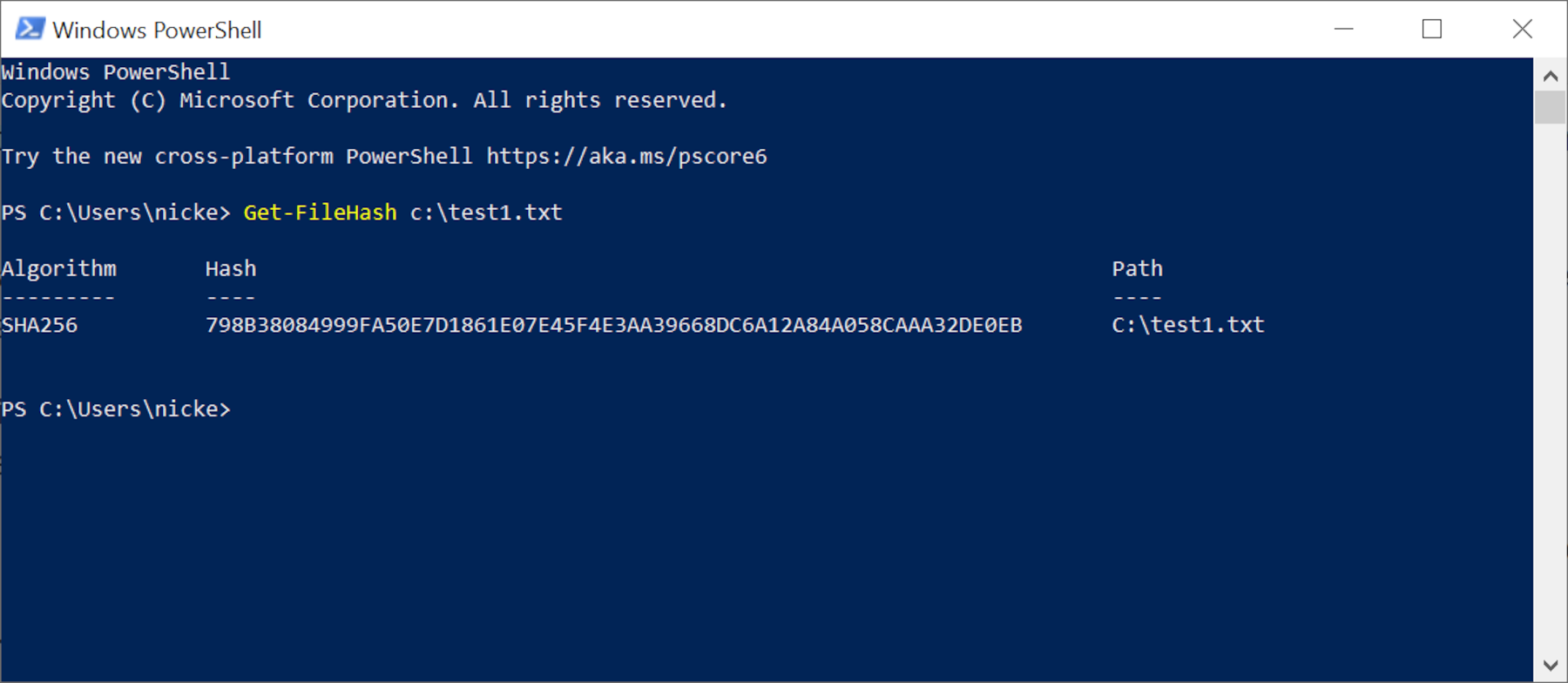
:max_bytes(150000):strip_icc()/005_validate-md5-checksum-file-4037391psd-5bc0fd324cedfd00269185ef.jpg)

On the window that appears, uncheck all items except “Filename” and “SHA-256” then select “OK”.When the application opens, click on “view” (located at the top left) and select “Choose Colums”.
#Windows checksum command download
Download and run the HashMyFiles application.Method 2: Use the attached Freeware tool HashMyFiles to view the SHA256 checksum of a file. In both cases the files that were being checked were in the same directory as the sha256sum.exe application. Below is an example screenshot shown for checking two different Kanguru Updater Applications.This is the SHA256 checksum of the application. Hit enter, a string of 64 characters will be displayed.Enter sha256.exe and enter the filename of the file you are checking.if you want to see the hash value for any other hash algorithm type, you need to use the following command. Keep in mind that you’ll see the SHA256 hash value of the file by default. On OS X use the shasum -a 256 or md5 command. Navigate to the path of the sha256sum.exe application. Once the command prompt window is launched, you should execute the following command for finding the hash value or MD5 checksum of the file. On Linux use the sha256sum or md5sum command line utilities to verify the integrity of the downloaded file.Open a command prompt window by clicking Start > Run, and typing in CMD.exe and hitting Enter.Method 1: Use the attached SHA256 checksum tool to view the SHA256 checksum of a file. To quickly verify the SHA256 Checksum values of our KDM, KRMC, or UKLA applications we recommend using one of the two methods below (both of these methods are Windows applications): On Windows, if you want to verify the hash of a downloaded file or the file you created to detect if it changed, a simple way is to use certutil command. If you unzip the contents and run the SHA256 checksum on the file contained within, the checksum values will be different then what we provide. Important! The checksum values we provide are for.


 0 kommentar(er)
0 kommentar(er)
